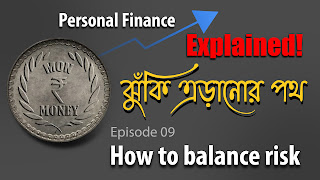Nomoshkar, welcome to Monmoney, presented by Content Crankers. Today’s episode is about medical insurance. But before we proceed, please take a look at the opening screen.
Suparna Pathak: I am Suparna Pathak, with me is Investment advisor Saibal Biswas. Our questions to Saibal today are about Medical Insurance. Medical insurance is pretty complicated. People don’t understand how much coverage is needed, what are riders? Many complain that with a coverage of less than Rs 5 lakh, am unable to get admission in any nursing home, as only 1 per cent bed charge is allowable on the entire amount… can you please walk us through the world of medical insurance.
Saibal Biswas: We hardly study medical insurance and mostly buy it out of compulsion. How much to insure? We don’t know and follow wild suggestions. Let me start with a little fact here – the cost of education and medical insurance attracts the highest inflation rates, running almost in double digits. This means that our medical expenses are going up by the day
Suparna Pathak: it is about 14 per cent on average over the last five years…
Saibal Biswas: now if you add compound rate on that, you can imagine where it is headed. What I feel is that we must consider Mediclaim as the priority. Because we don’t know how high medical expenses will be in the days to come. There are many families who have become impoverished in trying to meet medical needs. I feel that we must give more attention to medical insurance, and increase the coverage amount.
One good thing is that suppose you take a policy of Rs 10 lakhs and there is no claim, then the coverage amount gets automatically increased, even doubling over time. This is a good thing.
Secondly, as you are mentioning, and we often overlook these, there are different limits, Like a 1 per cent limit on room rents, or a 2 per cent limit on ICU’s, in which cases you have to pay out of pocket. However, there are policies where these limits are waived, or you can take a rider.
Suparna Pathak: And perhaps they are not very expensive either…
Saibal Biswas: yes, you have to pay a little extra premium. In cases of medical emergencies, we reach out to the nearest facility where we feel the best treatment will be made available. Now at that point in time, perhaps the low-cost rooms may not be available and one has to shell out the extra amount. What I feel is that we must be careful, we have to see the features of the policies. Suppose in one particular year, the policy ceiling gets extinguished, can we still access the policy in that year? There are many small riders, add-on’s that we must check out.
Suparna Pathak: You are saying that I can take a policy for Rs 5 lakhs and by spending a little extra, buy some riders, like a room rent allowance. As we have seen during the Covid a huge amount of consumables were used, which are mostly not covered …
Saibal Biswas: exactly. Such riders can be bought. One can even buy riders where one gets cash benefits, where every day spent in the hospital entitles one to a cash benefit, provided one has opted for that rider. Similar is the case with maternity benefits. Critical illness – if one takes such a rider one is provided with a lump sum immediately. We all know how expensive the treatment of critical illnesses like a kidney ailment or major cancer is … a part of which can be addressed with riders.
I feel everyone must pay attention to medical insurance and increase the amount of coverage. Many people think that the office pays for medical insurance. But what happens after you retire? Perhaps you will not be able to access anything when you need it
Suparna Pathak: Besides, after the age of 60, new policies cannot be started vSaibal Biswas: my take on the subject is that even if the office pays for the insurance one should take additional coverage and perhaps even increase it after retirement. Everyone must look at the riders and carefully study what is being offered by which insurer to arrive at the best policy for the self, for health is something that cannot be compromised.
Perhaps we should do a full episode on medical insurance at a later date.
Suparna Pathak: We will return with a full episode on medical insurance for we seldom appreciate the value of teeth while we have them. It will not be out of context to state here that the cost of dental care is also going through the roof and you can also consider getting dental care under your medical insurance umbrella.
Keep watching Mon Money, Check out the description box to get our contact addresses, keep sending in your queries, and to see the written text of our discussions. Like, Subscribe and press the bell icon to receive notifications about our latest episodes. Nomoshkar.
Saibal Biswas: keep sending in your questions. Perhaps they will lead us to areas hitherto untravelled. Stay with us. Thank You.
Episode takeaway: Mediclaim is a Must. Another Must is reading the fine print.










